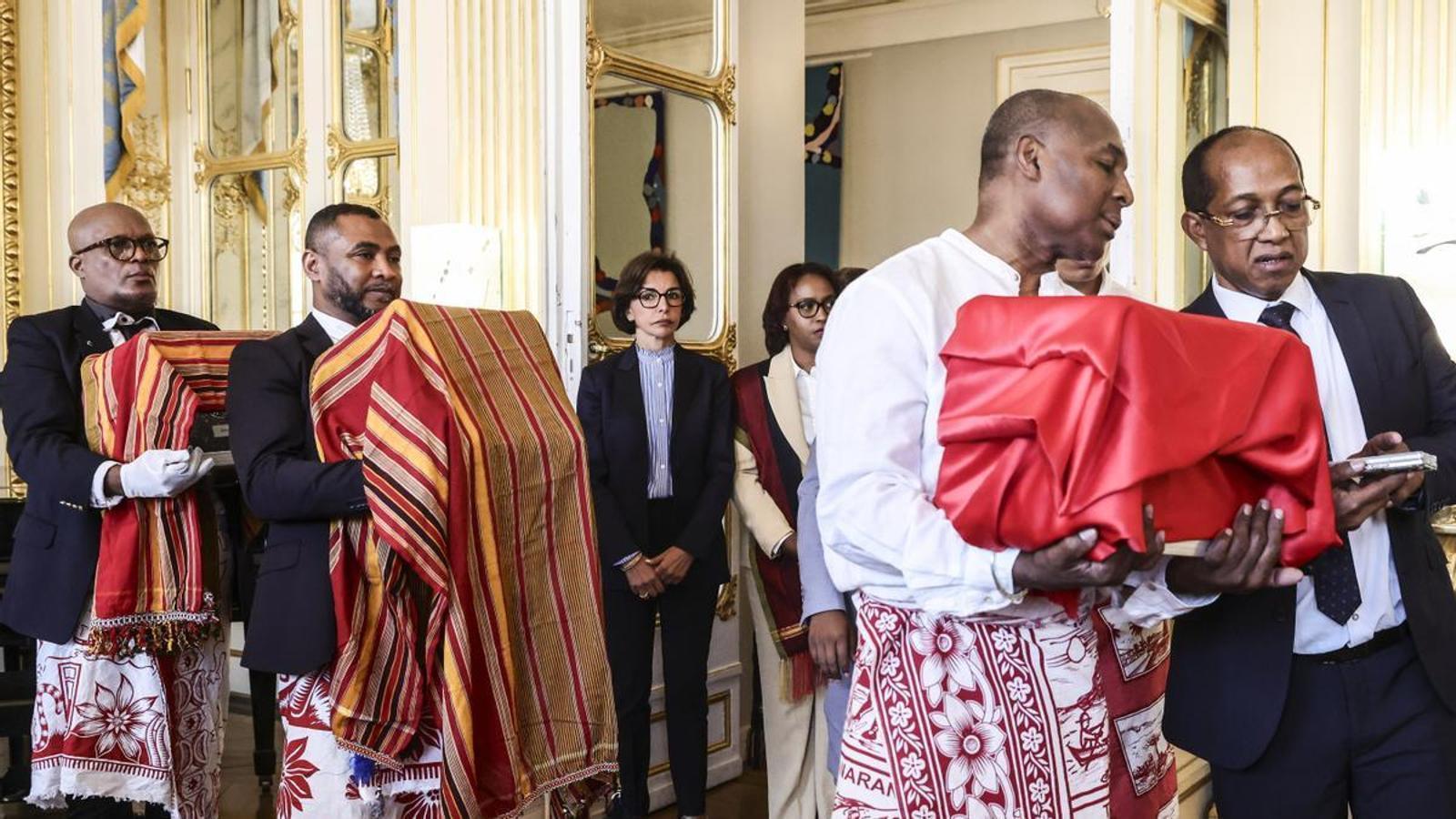France returns to Madagascar the skull of a king decapitated 128 years ago
The remains will be buried on the Indian Ocean island in compliance with a French dignity law.

BarcelonaMadagascar will receive next Sunday three human skulls that the French government handed over this week, complying, for the first time, with the 2023 law requiring the return of human remains for a proper burial. It has been 128 years since French troops, in the midst of their colonial conquest of the western African island, massacred the Sakalava ethnic group, killing and decapitating King Ampanjaka Toera. The skulls of the monarch and two of his warriors were subsequently transported to Paris and have been on display for years at the French capital's Museum of Natural History.
In 2003, the Malagasy government formally requested the return of the remains from the French government, but it wasn't until 2018 that work began on identifying the remains of the royal skull. According to experts, it was not an easy task due to the poor quality of the remains.
Now, finally, and obeying the French law of 2023, it has been possible to close a tragic chapter of the colonial era that evokes, for example, the exhibition and subsequent burial of thecalled Negro de Banyoles, wave Return from Germany of human remains stolen during the genocide Herero and Nama in Namibia. Little by little, France attempts to bring justice to its former colonies returning part of the numerous and rich artistic collections looted from Chad, Mali or Benin so that they can once again shine in their countries of origin.
The formal return of the skulls took place in a solemn ceremony in Paris, presided over by the French Minister of Culture, Rachida Dati, her Malagasy counterpart, Volamiranty Donna Mara, and the French Minister of Francophonie, Thani Mohamed-Soilihi. Dati stressed "the symbolic content" of the gesture of returning the skulls, which is intended to "appease the memory among France and its African partners".
For her part, Mara called the return "a significant moment for the Sakalava community and the nation," and said the remains held great cultural and emotional significance. "They are not collector's items; they are the invisible and indelible link that unites our present with our past," according to the minister, who also added that the absence of the remains has been felt as "an open wound in the hearts of the Big Island and, in particular, of the Sakalava community of Menabe."
Once the remains arrive in Madagascar, they will be transported to the city of Ambiky, where they will receive a reception befitting their royal lineage and spiritual treatment before being laid to rest in their eternal tomb.
